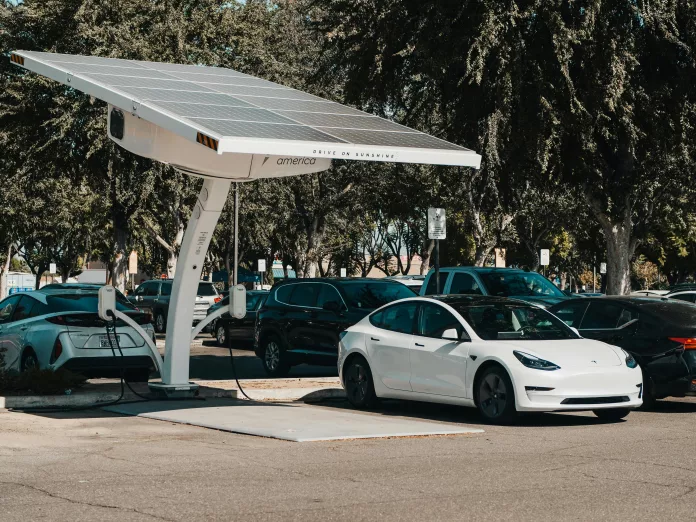The state of North Carolina is taking significant strides to expand its electric vehicle (EV) infrastructure with the introduction of a comprehensive map detailing the locations of its upcoming EV charging stations. This initiative, powered by the National Electric Vehicle Infrastructure (NEVI) Formula Program, aims to enhance the accessibility of EV charging facilities across the state.
A Crucial Federal Investment
The NEVI program, bolstered by a substantial $5 billion investment over the course of five years from the Bipartisan Infrastructure Law, is committed to establishing a reliable network of EV charging stations. These stations will be strategically placed along crucial Alternative Fuel Corridors, encompassing interstate highways and other major roadways.
Strategic Site Selection for EV Charging Stations
The North Carolina Department of Transportation (NCDOT) has meticulously selected the first 11 sites to address the current shortage of EV charging facilities in certain areas. This methodical approach ensures that both rural and urban communities gain equitable access to EV charging solutions. Developers are encouraged to consult the published map to scout potential locations for future development, courtesy of state-provided funds dedicated to this project.
NEVI Program Standards and Amenities
The NEVI program delineates specific criteria for the charging stations, which include a maximum 50-mile distance between locations and a requirement that they be no more than a mile off the Alternative Fuel Corridor. Stations must be equipped with a minimum of four 150 kW ports and a collective power output of 600 kW or greater. Not only will they offer round-the-clock access to the public, but they will also feature various amenities such as restrooms, food and beverage options, and places for shelter.
Paula Hemmer, NCDOT’s Statewide Initiative senior engineer, highlights the importance of the map in aiding businesses to identify economically viable sites for building and managing EV charging stations. The selection process takes into account factors like ease of accessibility for all travelers and closeness to additional conveniences like dining establishments and accommodations.
Phased Approach to EV Infrastructure
North Carolina’s plan of action will first focus on installing DC fast chargers along the coveted Alternative Fuel Corridors. Subsequently, the second phase will expand to include the construction of more localised DC fast chargers and the establishment of Level 2 charging options.
Anticipating receiving up to $109 million through the NEVI program, North Carolina is committed to the enhancement of its EV infrastructure over the next seven years, ensuring support for the growing number of EV owners and the overall sustainability of the transportation ecosystem.

























